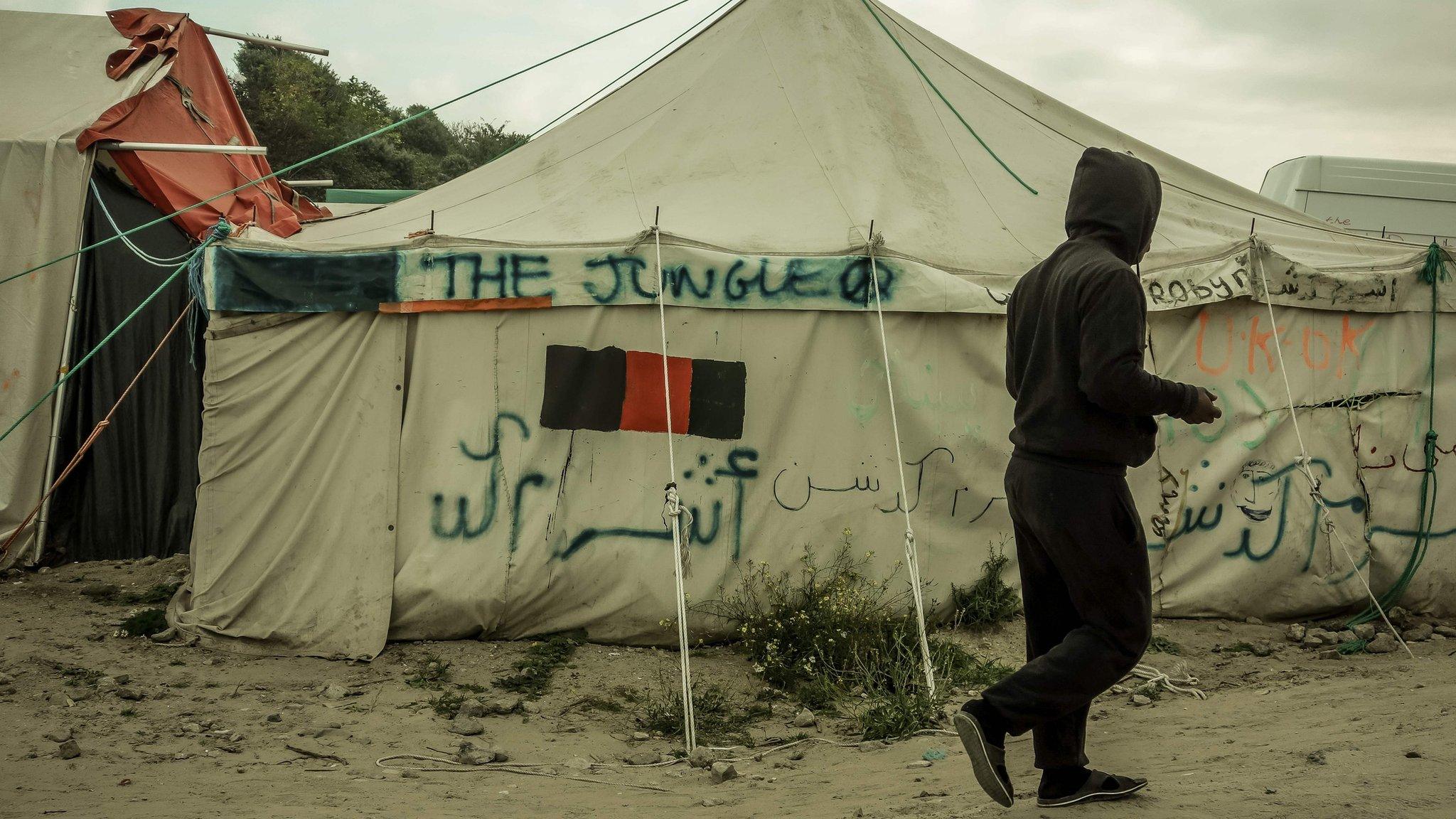The Calais conversation that left Lily Allen in tears
- Published
Lily Allen: "I apologise on behalf of my country, I'm sorry for what we've put you through"
Singer Lily Allen has never visited a refugee camp before. So when she meets unaccompanied child migrants living in a makeshift camp in Calais, it all becomes too much.
"I think as human beings we have a responsibility to help those who are suffering," Lily Allen explains to the BBC's Victoria Derbyshire programme.
She's at a recording studio in London, where she is working on her new album. It is less than 100 miles from the so-called Jungle in Calais - home to up to 10,000 migrants from countries such as Afghanistan, Syria and Eritrea - but the two places feel worlds apart.
The life of a celebrity is perhaps more removed than most from the squalid conditions those in the camp face. This is something Allen is keen to address - if only for a short while - as she prepares to head to the Jungle.
"I hope my visit will shine a light on the situation, humanise the people that are there," she explains. "At the moment what I read is all these articles that are very dehumanising, about people... and about children."
She says she frequently "sits next to millionaires at dinner", and that she would like to be able to ask them to "put their hands in their pocket" using her own first-hand experience of the camp.
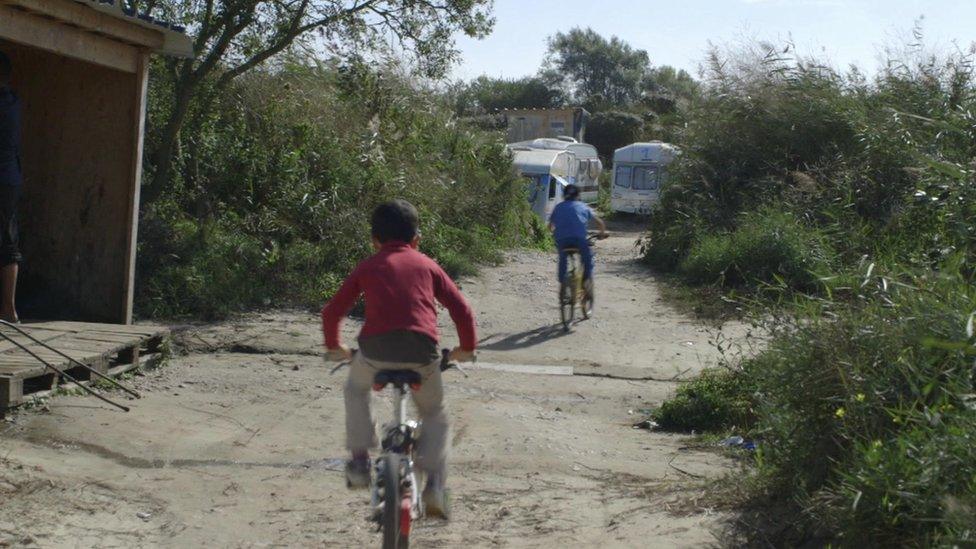
Hundreds of unaccompanied children live in the Jungle
Currently, official estimates suggest between 600 and 900 unaccompanied children are staying in the camp, which is of particular concern to Allen. Charities put the figure at around 1,000.
"I'm a mother and I've got two little girls. If something happened in this country and they were displaced and had to run for it, I hope other parts of the world were a little bit more helpful," Allen says, openly critical of the UK's response to the migrant crisis.
"The only thing I can think of that prevents us from acting is self-preservation. People are scared of our government having to provide funds to look after these other people and how that will affect us."
Home Secretary Amber Rudd has said action will be taken within "a matter of days - a week at the most", to bring eligible lone children to the UK.
She said more than 80 unaccompanied children had been accepted to the UK so far this year under EU rules known as the Dublin regulations.

Find out more
The Victoria Derbyshire programme is broadcast on weekdays between 09:00 and 11:00 on BBC Two and the BBC News channel.

Having left the studio behind, Allen travels to Calais with the charity Help Refugees and joins volunteers looking after the expanding population of the camp.
She begins by unloading a case of donations that her children asked her to bring - shoes, jackets, jumpers and even a Snow White costume, to be passed on to the Jungle's youngest residents.
In just a few weeks, however, the camp will be closed. French President Francois Hollande has vowed to dismantle it "definitively, entirely and rapidly" by the end of the year, with migrants to be moved to reception centres across France.
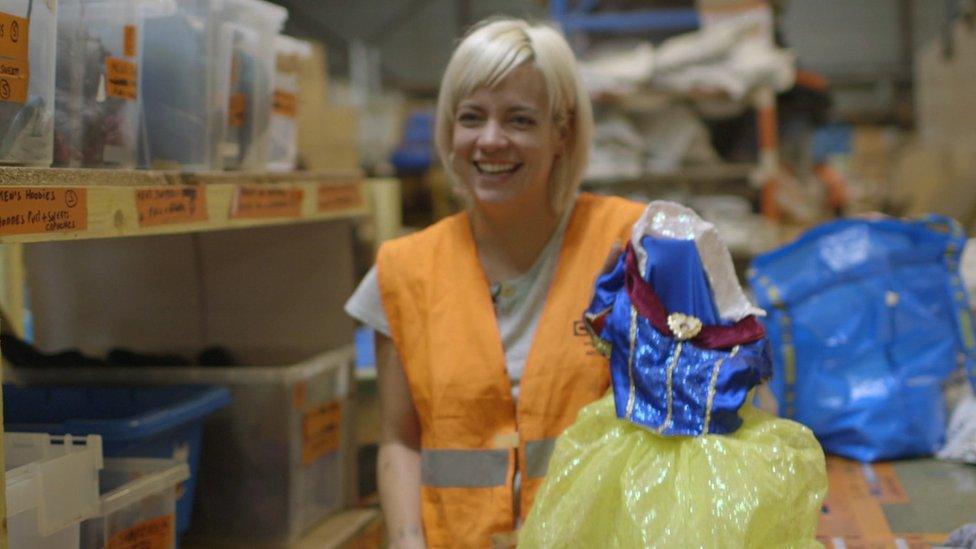
Lily Allen's children asked her to take clothes to donate - including a Snow White dress
There are fears that this could put migrants at risk of trafficking or leave them lost in the system.
The campaign group Citizens UK has previously drawn up a list of 387 lone children in Calais it believes have a legal right to come to the UK.
But not all might make the journey. Ms Rudd has said it "would be a really good result" if the UK took in 300 children - half the lower estimate for the number of unaccompanied children in the camp as a whole.
'I apologise for the UK'
One 13-year-old boy from Afghanistan, who asked for his name not to be used, has been staying in the camp for two months while his case is being processed. He says his father lives in Birmingham, giving him the right to legally make his way across the Channel.
But, desperate to make the final leg of his journey, he tells Allen that he still tries every night to cross the border by stowing away on lorries.
"The legal process is too slow. The way I am trying works better," he says through a translator.
"We wait for the truck to stop, then we get on the top. Last night we got on to the lorries and we hid ourselves. The police caught us. They started to kick us, and they slapped me."

One teenager from Afghanistan tells Allen that he fled the Taliban
The teenager made it to Calais after fleeing his home in Afghanistan, telling Allen: "The Taliban were going to kill me. The Taliban were on one side and IS on the other.
"My father sold his land and he sent me here."
Allen looks visibly shaken by his story.
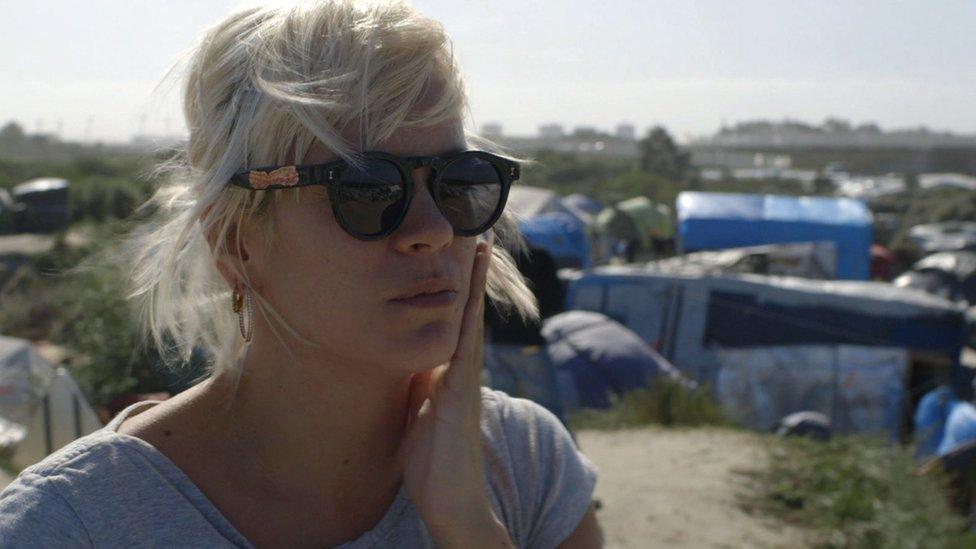
Britain became involved in the US-led invasion of Afghanistan in November 2001, deploying ground troops - but the success of the campaign is disputed, with the Taliban still posing a major threat to the country's government.
Allen tells him: "At three points in your life [the UK] has put you in danger. We bombed your country, put you in the hands of the Taliban, and now put you in danger of risking your life to get into our country."
Then, breaking into tears, she adds: "I apologise on behalf of my country, for what we've put you through."
He quietly responds: "It's all right."
The UK mission in Afghanistan has been extended into 2017, with military personnel training and advising Afghan security forces.
'Geographical lottery'
On a walk through the thousands of tents that make up the Calais camp, Allen has time to reflect.
"It's desperate. I'm shocked that this is happening, in such close proximity to where we live.
"Life is easier for me if I put this stuff out my mind," she explains in her characteristically honest manner. "That's not really a correct response to humanitarian crises.

The Jungle is to be dismantled before the end of 2016
"No-one's chosen to be here. It's not fair. It's a geographical lottery, wherever you're born in the world.
"I know I wouldn't want to end up here. I certainly wouldn't want my children to end up here."
Asked later whether she would consider taking an unaccompanied child into her own home, she replies: "100 per cent. 100 per cent. Who wouldn't?"
- Published10 October 2016

- Published26 September 2016
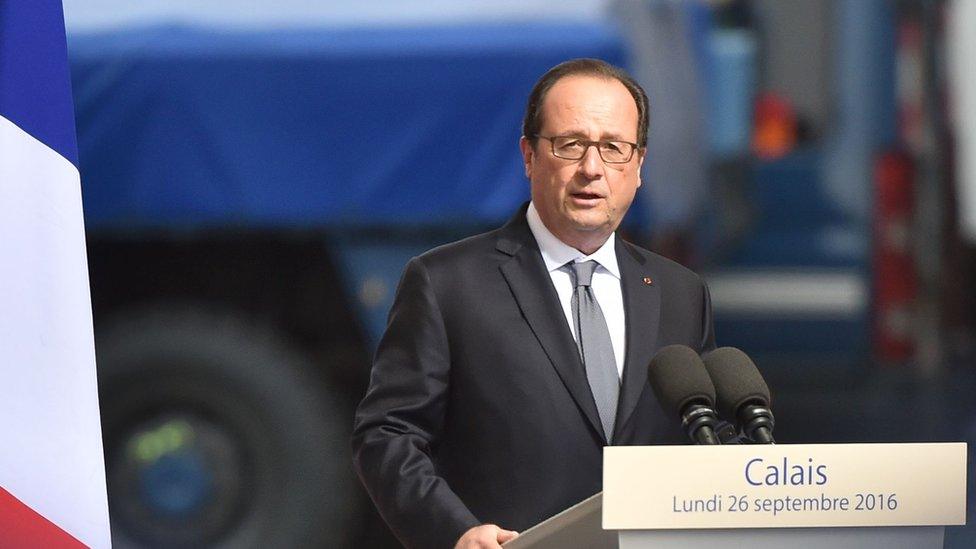
- Published9 October 2016
